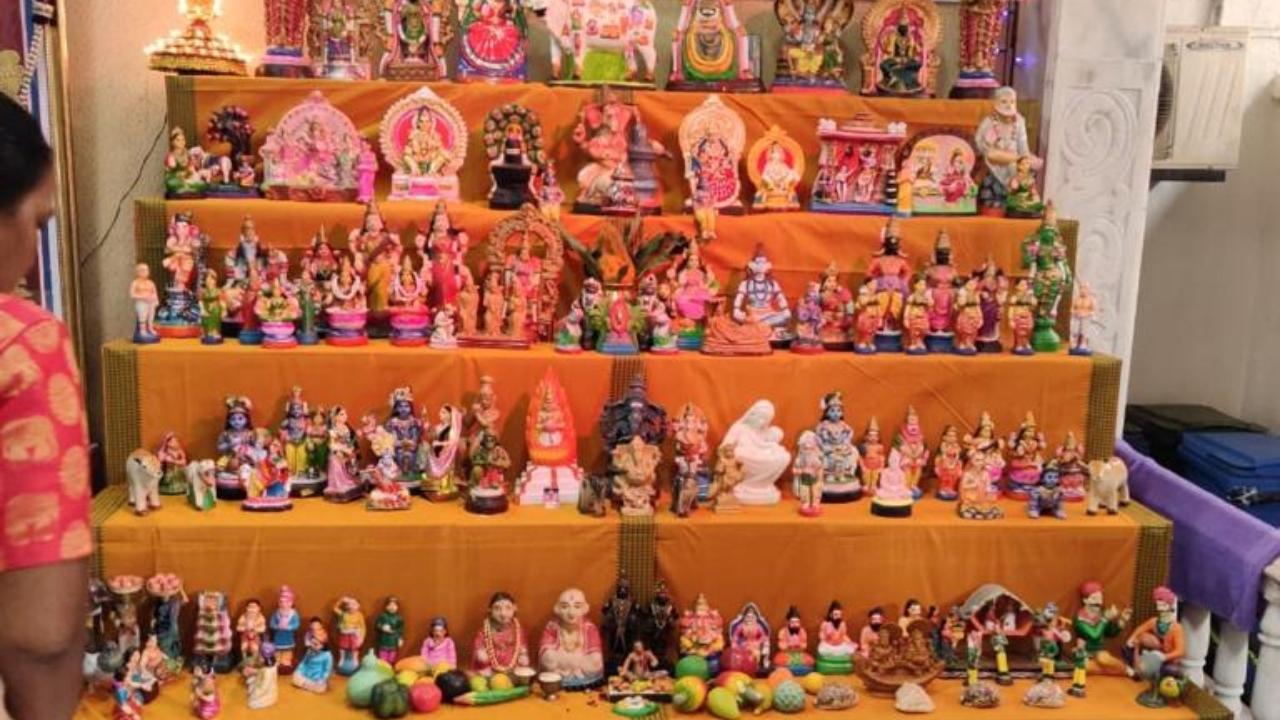After a gap of two years, community members are celebrating the Golu festival in a traditional way in temples. By arranging dolls of different Gods and Goddesses on steps, the devotees try to narrate devotional stories. Firstly, they place a doll of Lord Ganesha and later, other dolls are set up

Golu at Marubai temple in Matunga.
Decorating wooden dolls of different Goddesses and Gods on an odd number of golu padi (steps) is a tradition followed by Tamilians to celebrate the Navratri festival. As per the tradition of Tamilians, they celebrate the nine days festival as Golu.
After a gap of two years, community members are celebrating the Golu festival in a traditional way in temples. By arranging dolls of different Gods and Goddesses on steps, the devotees try to narrate devotional stories. Firstly, they place a doll of Lord Ganesha and later, other dolls are set up.
After two years of muted celebrations, a 300-year-old temple in Matunga has planned different social and community-based activities for all nine days.
Anil Gawand, a managing trustee of Marubai temple in Matunga said, “We have been celebrating Golu for more than 25 years at this temple. We start preparing well before the festival as it is celebrated along with nine days Navratri festival. More thousands of visitors visit the temple to offer prayer to Goddess Durga at the temple.”
It's a traditional practice to set up wooden dolls named Marapaachi, a traditional couple that signifies different beliefs as per the individual family. It is a custom to have an odd number of steps (padi). One can increase the steps but can’t reduce them. Few families also add new dolls every year.
Also read: When is Shardiya Navratri 2022? Date, significance, history and all you need to know
"We have organised bhajan of different groups every day in the evening and a daily puja in the morning,” added Gawande.
Another temple in Matunga, Sri Sankara Mattham too celebrates Navratri and Golu festivals. Besides keeping seven steps Golu, they have been conducting special homam in the morning and evening by Srividya Upasakas to appease Goddess Durga and other goddesses to receive their blessings.
The ninth day of the festival is celebrated as Saraswati Pooja when children are initiated into the first stage of learning on this auspicious day and the tenth day is Vijayadasami (day of Victory).
 Subscribe today by clicking the link and stay updated with the latest news!" Click here!
Subscribe today by clicking the link and stay updated with the latest news!" Click here!








